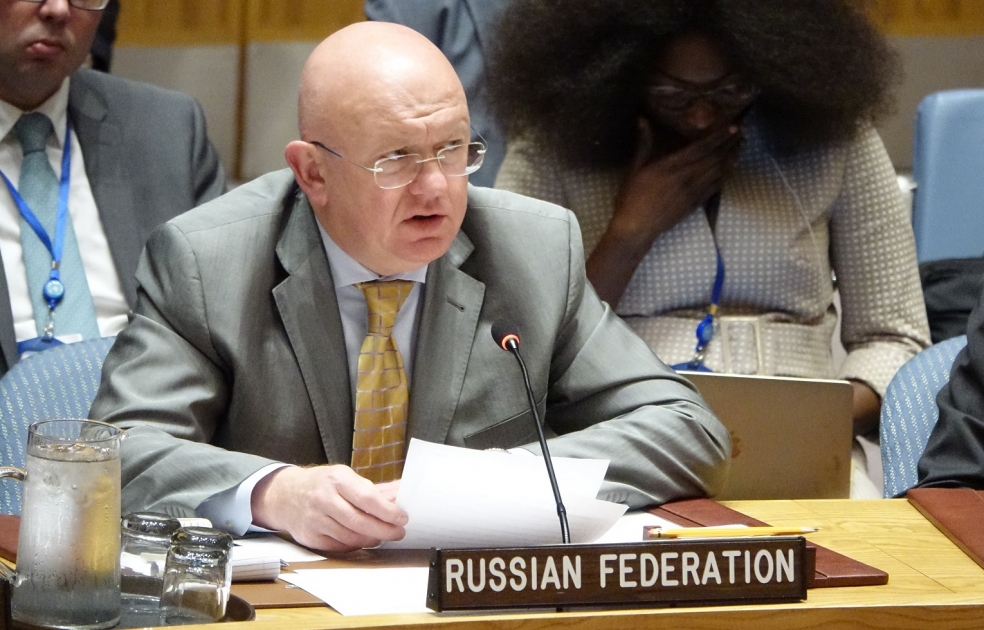Statement by Ambassador Vassily A. Nebenzia, Permanent Representative of the Russian Federation to the United Nations, during the UN Security Council meeting on on the situation in Afghanistan and its implications for international peace and security
I would like to thank Mr. Tadamichi Yamamoto, Special Representative of the SecretaryGeneral and Head of the United Nations Assistance Mission in Afghanistan (UNAMA), for his analysis of the evolving circumstances in Afghanistan. And, of course, we listened carefully to the statement by Mr. Salahuddin Rabbani, Minister for Foreign Affairs of the Islamic Republic of Afghanistan.
We agree with many of the views expressed in the most recent quarterly report of the Secretary-General on the situation in Afghanistan and its implications for international peace and security (S/2017/783), and for our part would like to make the following comments:
We are concerned about the deteriorating military situation and increasing terrorist activity in Afghanistan. We continue to be particularly worried about the activities of the Afghan wing of the Islamic State in Iraq and the Levant (ISIL) and its attempt to establish itself in the northern provinces. According to our estimates, the group currently has an impressive total of more than 7,000 fighters in the country.
ISIL’s expansionist drive represents a real threat to the security of our friends in Central Asia and to the southern regions of Russia. Nor can we ignore the problem of the unidentified helicopters in northern Afghanistan that have been observed providing assistance to ISIL fighters. This situation must be thoroughly investigated and any such covert activity stopped immediately.
The drug problem in Afghanistan is getting worse. We are concerned about the continuing increase in the acreage used for drugs and the rise in their production. Narco-dollars now account for a considerable part of terrorists’ income — as much as 35 or 40 per cent — in Afghanistan. We therefore want international efforts to combat the Afghan drug trade to be enhanced.
We believe there is good potential for strengthening cooperation in that regard between Afghanistan and the Collective Security Treaty Organization.
Regrettably, we have been compelled to conclude that the protracted and major presence in Afghanistan of military contingents from the United States and NATO has not helped to stabilize the military and political situation.
We also have questions about their intention to shift the focus of their tactics to using force to put pressure on the armed opposition and individual countries in the region. As we know, that approach has not had positive results in the past and has served only to escalate the conflict.
We firmly believe that at this stage the emphasis should be on negotiation efforts, which will enable us to launch the national reconciliation process as soon as possible. Needless to say, it is Kabul that should play the principal role in that process, but the international partners providing external support for it should cooperate on an equal basis and take into account the national interests of every country in the region, without exception.
Unfortunately, despite the presence of numerous international entities in this area, we have failed to achieve the main goal of involving the Taliban in peace negotiations. In that context, we should consider the Moscow format for consultations on Afghanistan — in which almost all the interested parties, including the Central Asian States, are participating — as the optimal platform for substantive talks on national reconciliation and establishing a direct dialogue between Kabul and the Taliban. We believe the format is fully in line with the requirements.
We continue to believe that UNAMA plays an important role in coordinating international assistance to Afghanistan, and we took note of the SecretaryGeneral’s special report on the strategic review of its mandate (S/2017/696). However, we should note the world’s growing realization of the importance of the regional context in settling the Afghan crisis, and therefore of the potential of well-established entities in the area, especially the Shanghai Cooperation Organization (SCO).
We hope to see success through the revived mechanism of the SCO Afghanistan Contact Group, whose first meeting is scheduled for 11 October.
